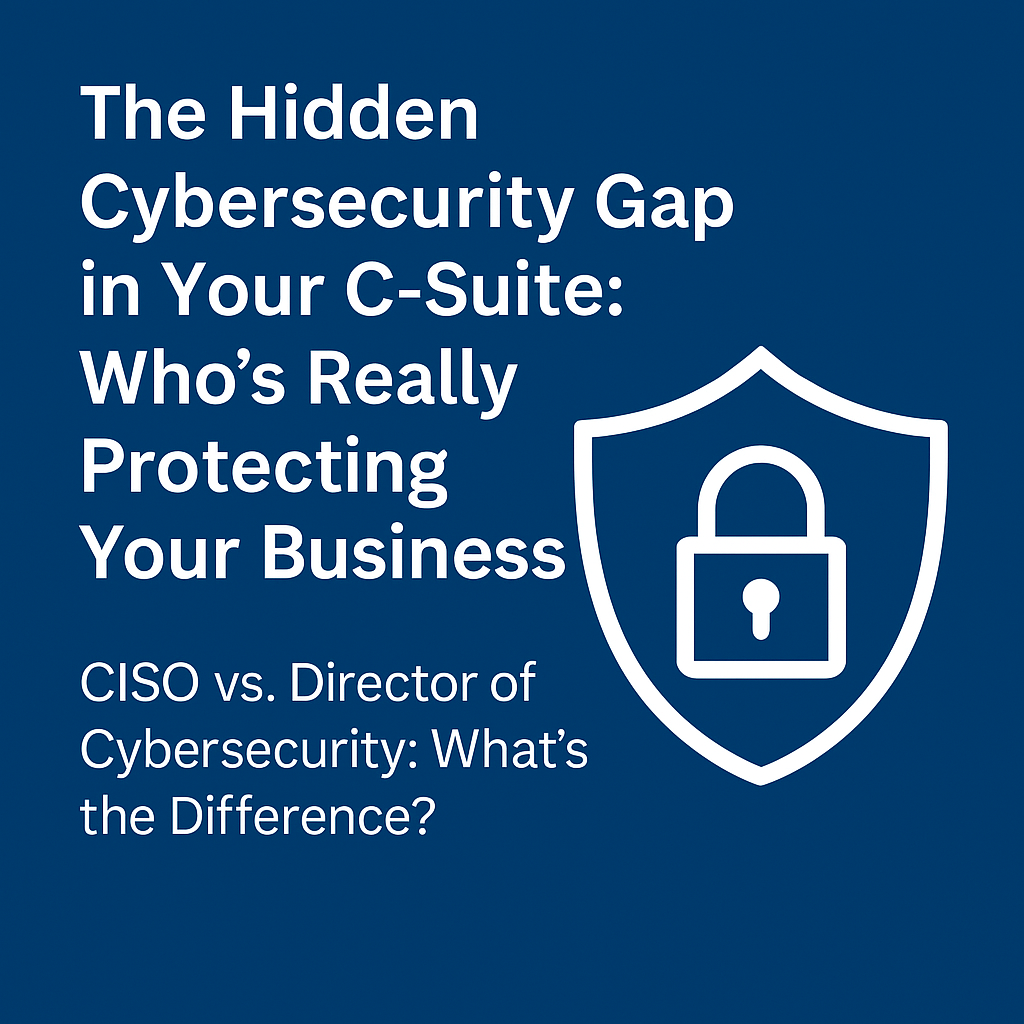If your CIO is acting as your CISO or you’re using a Director of Cybersecurity instead of a CISO, consider reading this, for there is another viable and cost-effective option.
CEOs have become increasingly concerned about how to integrate a robust cybersecurity strategy with their businesses because of the high-spike of data breaches reported last year. According to IBM, the average cost of a data breach reached $4.88 million, a record high, and there were 3,158 publicly reported data breaches, with a 211% year-over-year increase in victims. Organizations face increasing cybersecurity threats that can jeopardize their operations, reputation, and financial stability.
Consequently, the role of the Chief Information Security Officer (CISO) has become pivotal in safeguarding enterprise assets and ensuring compliance with regulatory standards. However, not all organizations have a dedicated CISO, and rely on other executives, such as Chief Information Officers (CIOs) or Directors of Cybersecurity, to assume these responsibilities. This approach has its advantages and drawbacks, particularly when compared to the unique competencies that a dedicated CISO brings to the table.
Managing the CISO Function: Roles, Pros, Cons, and CISO Competencies
|
Executive Role |
Pros |
Cons |
Unique CISO Competencies |
|
Chief Information Officer (CIO) |
|
|
|
|
Director of Cybersecurity |
|
|
|
Why CEOs Consider Existing Staff for the CISO Role
CEOs often consider assigning CISO responsibilities to existing staff because of budget constraints, the perceived redundancy of roles, or the urgency to address security needs without undergoing a lengthy hiring process. Leveraging internal talent can also be seen as a way to utilize institutional knowledge and maintain continuity.
The Case for Interim or Fractional CISOs
While internal appointments might offer short-term solutions, they may not provide the specialized focus required for robust cybersecurity strategies. Engaging an interim or fractional CISO presents an ideal alternative, offering several benefits:
-
Expertise: Access to seasoned professionals with specialized knowledge in cybersecurity without the commitment of a full-time hire.
-
Cost-Effectiveness: Flexible engagement models allow organizations to allocate resources more efficiently, aligning cybersecurity efforts with budgetary considerations.
-
Objectivity: External CISOs can provide unbiased assessments of the organization's security posture, free from internal politics or preconceived notions.
-
Scalability: The ability to adjust the level of engagement based on the organization's evolving needs ensures that cybersecurity measures remain robust and relevant.
In summary, while assigning CISO responsibilities to existing roles like the CIO or Director of Cybersecurity may offer temporary relief, the unique competencies of a dedicated CISO are crucial for developing and implementing an effective cybersecurity strategy. For organizations hesitant to commit to a full-time position, interim or fractional CISOs provide a balanced solution, delivering expertise and strategic oversight to strengthen cybersecurity frameworks and protocols.
Thinking about hiring a CISO? Read "The CEO's Guide to Hiring a CISO."


